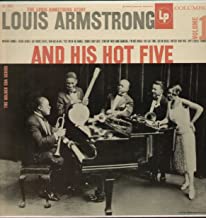
Daily Dose Of Jazz…
Frederick L. Robinson was born on February 20, 1901 in Memphis, Tennessee. He learned to play trombone as a teenager, and studied music in Ohio before moving to Chicago, Illinois where he played in the Carroll Dickerson Orchestra.
Robinson went on to play on Louis Armstrong’s Hot Five recordings and continued working with both Dickerson and Armstrong until late 1929, when he took a position in Edgar Hayes’s band. In the 1930s he worked extensively as a sideman, with Marion Hardy, Don Redman, Benny Carter, Charlie Turner, Fletcher Henderson, and Fats Waller.
In 1939-1940 he was in Andy Kirk’s band, and played later in the 1940s with George James, Cab Calloway, and Sy Oliver. Early in the 1950s he worked with Noble Sissle, but after 1954 he was less active as a performer. Trombonist Fred Robinson passed away on April 11, 1984 in New York City.
More Posts: history,instrumental,jazz,music,trombone
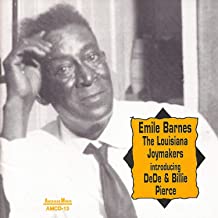
Daily Dose Of Jazz…
Emile Barnes was born on February 18, 1892 in New Orleans, Louisiana. His first instrument was a toy fife. He soon moved on to the flute, and then the clarinet, which was given to him by the great Bunk Johnson. He studied under Lorenzo Tio Jr., Alphonse Picou, George Baquet, and Big Eye Louis Nelson Delisle. By 1908, at sixteen, he became active professionally in New Orleans, Lousiana by 1908, he was long well regarded locally for his bluesy and distinctively individualistic style.
He played with the Chris Kelly band from the late 1910s through the 1920s. He never became widely known to jazz fans outside of New Orleans until he made recordings during the revival era for American Music Records. He performed at the opening night of Preservation Hall and also in his later years.
In the 1930s he played with Wooden Joe Nicholas, and in the 1940s with Kid Howard. During this time, Barnes also had standing gigs with Lawrence Toca at the Harmony Inn, a New Orleans venue, and with Billie and DeDe Pierce at Luthjen’s dancehall. As a brass band musician, he performed with the Superior and Olympia Brass Bands, among others.
Emile was featured on several Folkways Records New Orleans compilation albums during the 1950s, and again in the early 60s as a solo artist. When British trumpeter Ken Colyer jumped ship and visited New Orleans in 1953, he recorded with a pick-up band including Barnes.
Clarinetist Emile Barnes, ragtime and brass band player, passed away on March 2, 1970 in his hometown.
More Posts: clarinet,history,instrumental,jazz,music
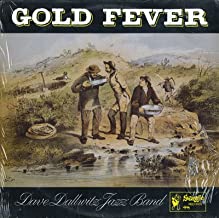
Daily Dose Of Jazz…
David Friedrich Dallwitz was born on October 25, 1914 in Freeling, South Australia. He studied violin as a child and after moving with his family to Adelaide, South Australia in 1930, he developed an aptitude for jazz piano. Beginning in 1933 for two years he studied concurrently at the South Australian School of Art and the North Adelaide School of Fine Art.
He led the Southern Jazz Group, a Dixieland band that performed at the first Australian Jazz Convention. Abandoning jazz for a period, he studied at the Elder Conservatorium of Music, composing symphonic and chamber music and taking up bassoon and cello. He became involved in composing and arranging music for revues, leading to the formation of the Flinders Street Revue Company, for which he also directed and played piano.
Returning to jazz in 1970, he resumed recording. He worked with Australian progressive musicians such as John Sangster, Bob Barnard, and Len Barnard. He led the Dave Dallwitz Ragtime Ensemble.
Pianist, bandleader, composer, and arranger, painter, and art teacher Dave Dallwitz, who led jazz, Dixieland and ragtime bands, passed away on March 24, 2003 in Adelaide after finishing the artwork for his album The Dave Dallwitz Big Band live at Wollongong, December 1984.
More Posts: arranger,bandleader,composer,educator,history,instrumental,jazz,music,painter,piano
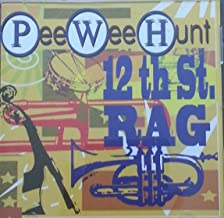
Daily Dose Of Jazz…
Pee Wee Hunt was born Walter Gerhardt Hunt on May 10, 1907 in Mount Healthy, Ohio. Developing a musical interest at an early age, his mother played the banjo and his father played the violin. The teenager was a banjoist with a local band while he was attending college at Ohio State University where he majored in Electrical Engineering. During his college years, he switched from banjo to trombone. Graduating from the Cincinnati Conservatory of Music, he joined Jean Goldkette’s Orchestra in 1928.
Pee Wee was the co-founder and featured trombonist with the Casa Loma Orchestra, but he left the group in 1943 to work as a Hollywood radio disc jockey before joining the Merchant Marine near the end of World War II. He returned to the West Coast music scene in 1946 and his Twelfth Street Rag became a three million-selling number one hit in 1948.
Hunt was satirized as Pee Wee Runt and his All-Flea Dixieland Band in Tex Avery’s animated MGM cartoon Dixieland Droopy in 1954. His second major hit was Oh! in 1953, his second million-selling disc, which reached number three in the Billboard chart.
Trombonist Pee Wee Hunt passed away after a long illness at age 72, on June 22, 1979 in Plymouth, Massachusetts.
More Posts: bandleader,banjo,history,instrumental,jazz,music,trombone
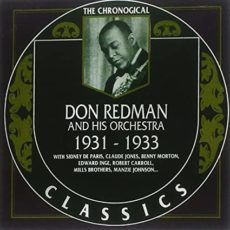
Daily Dose Of Jazz…
Edward Inge born May 7, 1906 in Kansas City, Missouri and played clarinet from age 12. By 18 he was playing with George Reynolds’s Orchestra, then in the 1920s worked with Dewey Jackson, Art Sims & His Creole Roof Orchestra, and Oscar Young.
In 1930, he became a member of McKinney’s Cotton Pickers, then was offered a spot in Don Redman’s band in 1931, where he played until 1939. From there he replaced Don Byas in Andy Kirk’s band, remaining with Kirk until 1943.
By the mid~1940s Inge became more in demand as an arranger, writing charts for Louis Armstrong, Redman, and Jimmie Lunceford among many others over the course of his career. He led his own band in Cleveland, Ohio in the middle of the 1940s, then worked out of Buffalo, New York in the 1950s and 1960s.
In the 1960s he played with Cecil Johnson, and in the 1970s with C.Q. Price. His recording credits include work with The Mills Brothers, Cab Calloway, and The Boswell Sisters. Clarinetist and arranger Edward Inge passed away on October 8, 1988.




